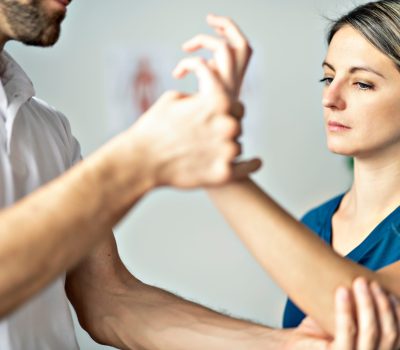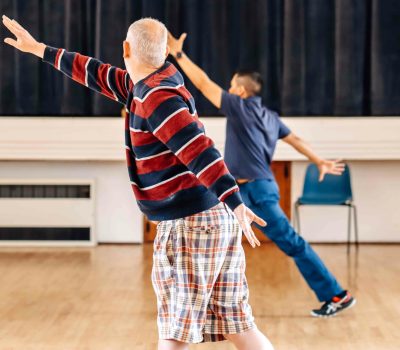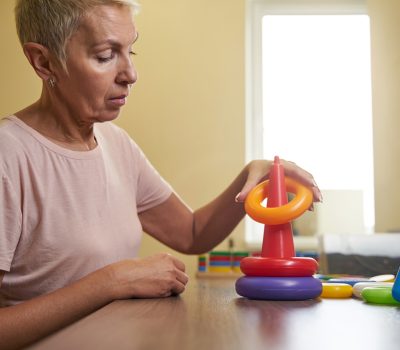Falls are a major health concern, especially for older adults. In fact, falls are the leading cause of injury-related hospitalisations among adults aged 65 years and older, accounting for over 220,000 hospital admissions each year. Falls can result in serious injuries such as broken bones, head trauma, and long term hospital admissions. Fortunately, many falls can be prevented with proper awareness and precautions. Below are some things you can try to help reduce your risk of falling.
Risk factors – what are they?
- D – Drugs – Poly-pharmacy (multiple medications) can cause an increased risk, be sure to review your medications and timings yearly with your doctor.
- A – Ageing – as we age our systems can decline, whether that is balance, strength or postural changes.
- M – Medical Conditions – The risk of falls is also higher among people with certain medical conditions, such as parkinson’s, stroke, brain injury, MS, GBS, neuropathy, diabetes, cardiac conditions (untreated) or those with low blood pressure and dementia,
- E – Environment – Having clutter, trip hazards, pets, lack of lighting or inappropriate walking aids can all lead to accidental falls. Be sure to review your environment and complete a safety check every so often!
So what can I do to address these?
Exercise Regularly
One of the most important, regular things you can do is to exercise. Taking 30 minutes daily to participate in some vigorous exercise (something that gets you out of breath) can help to maintain your physical abilities as you age.
Ideally your exercise should be varied, mixing cardiovascular exercise such as brisk walking or gardening, with strength and balance training. Speaking with a physiotherapist or personal trainer can help to provide you with a more personalised plan.
Check Your Medications
Some medications can cause dizziness, drowsiness, and other side effects that can increase the risk of falls. For example sedative medications such as sleeping tablets may make you unsteady first thing in the morning, or opiates such as morphine may slow your reaction time.
It is important to review your medications with your healthcare provider to identify any medications that may be contributing to your fall risk. Be sure to follow your healthcare provider’s instructions when taking your medications, for example timing of medication can be crucial in conditions such as Parkinson’s Disease.
Make Your Home Safe
Make your home safer by removing tripping hazards, such as loose rugs or electrical cords, and by installing grab bars in the bathroom and on stairways. Ensure that your home is well-lit, and that you have adequate lighting in areas such as stairways, hallways, and bathrooms. Consider using a nightlight in your bedroom or hallway to help you navigate in the dark.
Wear Appropriate Footwear
Wear shoes that are well-fitted and have non-slip soles. Avoid wearing shoes with high heels or shoes that are too loose or too tight. Shoes with good support can help you maintain your balance and reduce the risk of falls.
Get Your Vision Checked
Poor vision can increase the risk of falls. Have your vision checked yearly and wear glasses or contact lenses as prescribed. If you wear varifocals, consider changing to two sets of glasses as they can affect your depth perception and increase your likelihood of falling. If you have difficulty seeing in low light, consider using a flashlight or nightlight.
Have your hearing checked
Your ears are really important in helping you balance, with the small bones in your inner ear helping you work out where your body is in relation to your environment. Having your hearing checked and treated can help reduce risk, it also means you may be able to hear your pets coming instead of tripping over them!
Bone health
As we age our bones become less dense and more brittle, when this becomes severe it is called osteoporosis. This means that you are more likely to sustain a fracture when falling. There are numerous ways to help strengthen your bones, one is to ensure you are taking enough Vitamin D and calcium. Spending 20 minutes a day out in the sun can really help! Your GP is also able to prescribe supplements to increase your levels of Vitamin D and calcium.
You can also strengthen your bones through exercise, specifically adding weight to movements. Speaking with a physiotherapist or personal trainer can provide you with direction regarding which exercises are the most beneficial.
Stay Alert
Be aware of your surroundings and stay alert. Avoid distractions such as texting or talking on the phone while walking. Take your time when getting up from a seated or lying position, and use caution when walking on uneven or slippery surfaces.
In conclusion
Recognising the risk of falls and how you can reduce that risk is important for maintaining good health and preventing serious injuries. By following these falls prevention strategies, you can reduce your risk of falling and stay safe and healthy. If you need further advice speak to your GP or physiotherapist who can provide you with advice tailored to your situation.






